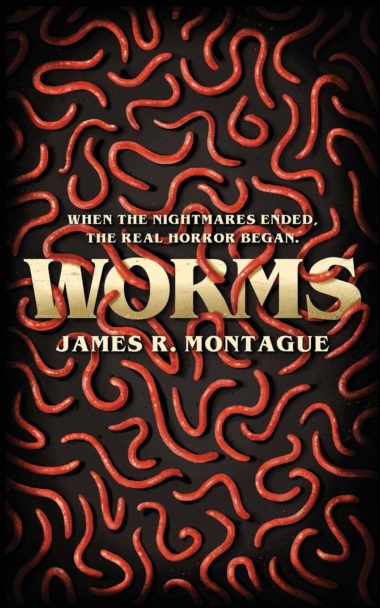 By JAMES R. MONTAGUE (Valancourt Books; 1979/2018)
By JAMES R. MONTAGUE (Valancourt Books; 1979/2018)
Another fun rediscovery by Valancourt Books, this one a long-forgotten British paperback original from 1979. The writer was Christopher Wood, a British screenwriter (for a couple seventies-era James Bond movies and REMO WILLIAMS: THE ADVENTURE BEGINS) and novelist. As such he was known for publishing under a variety of pseudonyms, in this case “James R. Montague” (in homage to M.R. James).
Wood was known for seamlessly adapting himself to a variety of styles and subjects (as he said of his James Bond scripts, “One of the keys of writing a Bond movie is to do the same thing, just differently”). With WORMS he slips comfortably into the “nasties” model popular in the seventies, in which rats, crabs, snakes and other beasties became instruments of evil, fused with the psychological horror trope—a practice that stretches back to “The Tell-Tale Heart,” a story containing a great deal in common with the present book.
The first person narrator is one James Hildebrand, a selfish and obnoxious Londoner with a wife who (understandably) can’t stand him. The loathing is mutual, and comes to a head while the two are looking for a retirement home in the coastal town Blanely. Here Hildebrand murders his wife and covers up the crime (or so he thinks), and then, inexplicably enough, relocates to the very location where said crime occurred.
That he’s in for a comeuppance is obvious very early on, with the instrument of that comeuppance indicated by the title. Worms are recurring sights, with Hildebrand, who is admittedly repulsed by the things, constantly being confronted with them in life and in dreams. It’s not until the book’s final third that the worms become a full-bodied presence; by then a second murder has been committed and a nuclear reactor constructed in Blanely, leading to a great deal of better-late-than-never creepy-crawly business, with massing worms described in sentences like “As I watched, almost paralyzed with terror, a crawling, slithering mass spilled towards me…all I could see was a wriggling mass of worms, building up layer upon layer with every fresh wave…”
I won’t reveal precisely how Hildebrand gets his just desserts, but get ‘em he does. One of the great villains of 20th Century horror fiction he isn’t, but seeing the world through his jaundiced first person perspective is interesting, and not a little disquieting. The novel overall isn’t anything particularly special (those proclaiming it a “lost classic” are way off), but as a reasonably classy riff on an underachieving genre it’s not bad at all.
